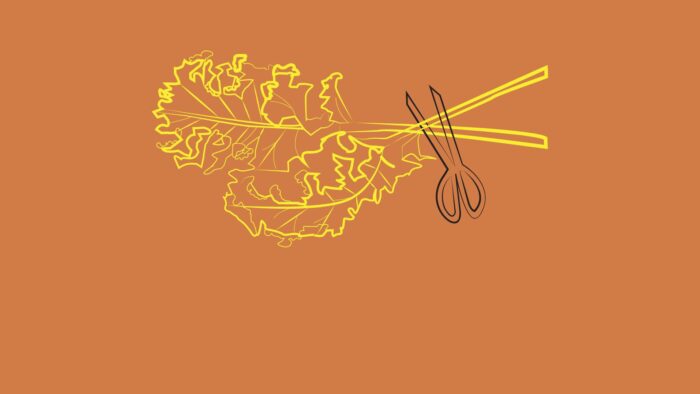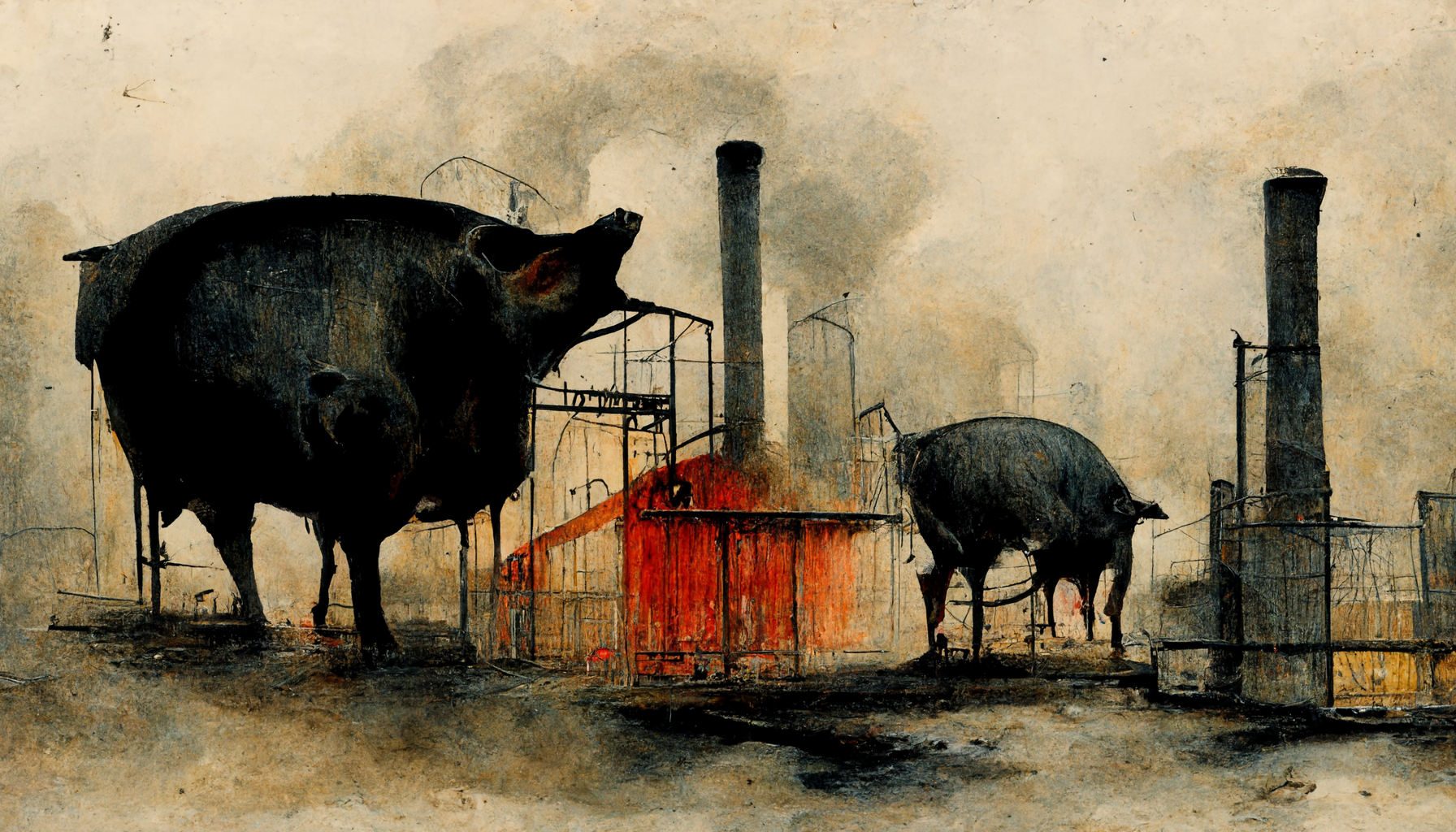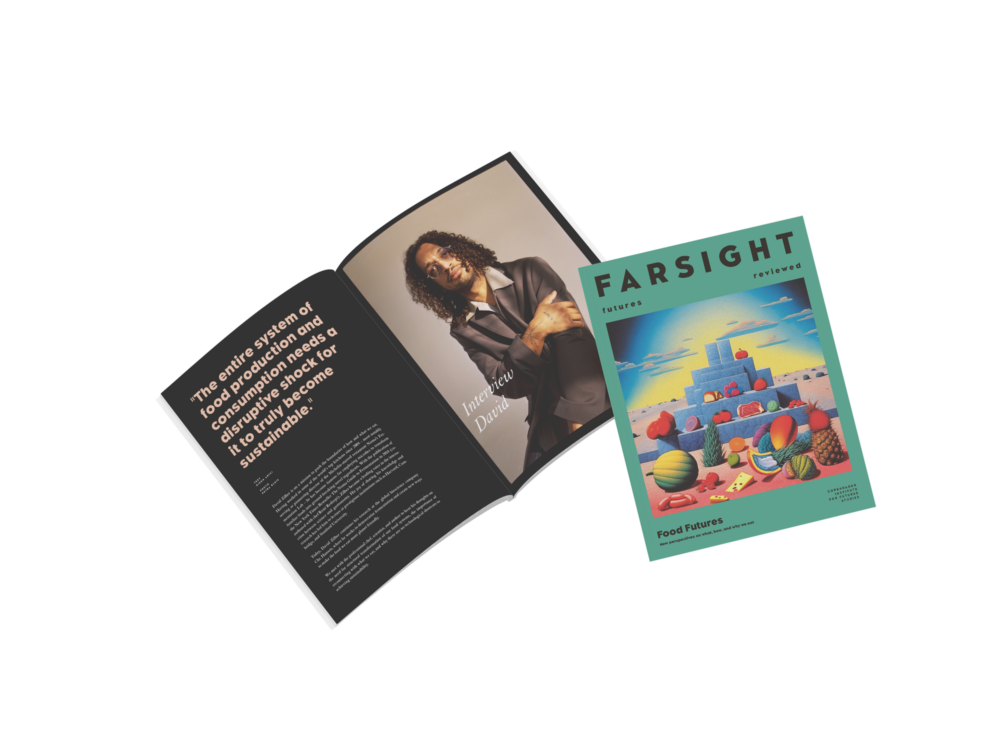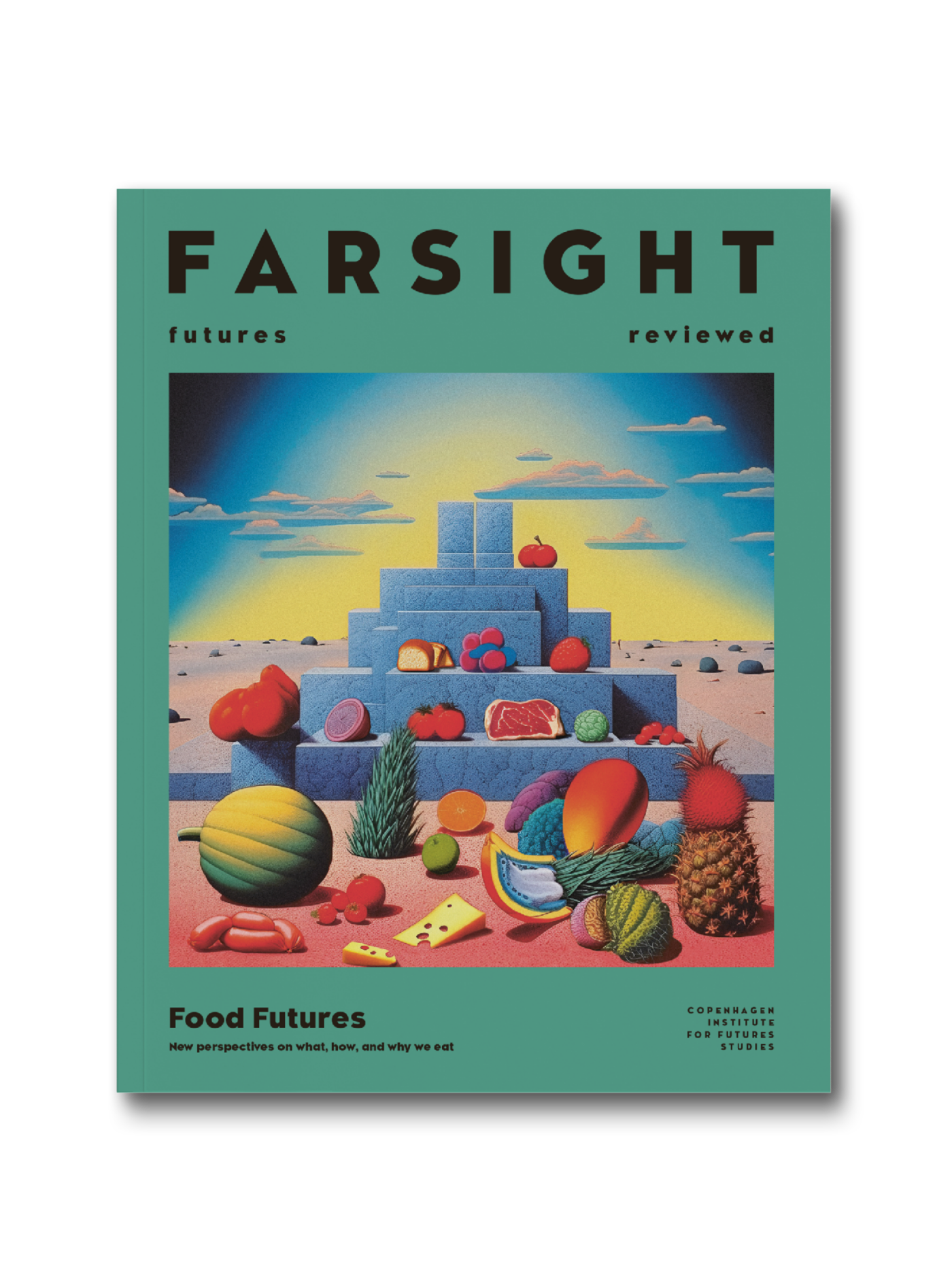
In turn, we use cookies to measure and obtain statistical data about the navigation of the users. You can configure and accept the use of the cookies, and modify your consent options, at any time.

A Future Free From Species-ism
Should humanity’s circle of moral concern include all sentient beings in the future?
Illustration: Midjourney AI
(The views expressed are the author’s and do not reflect those of the Institute)
Have you ever considered whether you would have been a liberator, perpetrator, or bystander during one of history’s many societal injustices? Would you have actively done something to combat slavery, for example – or as a bare minimum, at least not have actively contributed towards it? Looking back, it can be difficult to imagine how some people could have thought so little of their fellow human beings due to inconsequential differences in appearance. Among animal ethicists and activists, however, the mechanisms that drove such history’s injustices are abundantly clear – and very much alive.
In his 1981 book The Expanding Circle, the Australian moral philosopher Peter Singer outlines what he considers a widening sphere of moral concern among humans. Herein, Singer analyses how humanity’s original circle of altruism extended merely towards one’s family and tribe, but gradually developed to include wider marks of identity, such as religion, race, nation, and to an increasing extent, humanity as a whole. Today, we (at least formally) consider demarcating spheres of moral concern among arbitrary lines, such as race or gender, something relegated to particularly regressive eras of history.
Singer’s central argument, however, is that this ‘moral circle’ should not stop expanding once the interests of all humans are considered. Instead, it ought to expand further to cover all sentient beings with the capacity to feel pleasure or pain. The resulting conclusion is that restricting equal consideration of interests to our own species would be as arbitrary as it would be to restrict it to one’s own race. A similar argument was put forward by the English moral philosopher Jeremy Bentham in 1780, claiming that there are no morally relevant differences between humans and sentient animals. Even if a moral characteristic that all humans and no non-human animals possessed was identified, Bentham argued, it would not deprive of us of our moral responsibility to not harm animals unnecessarily given their capacity for suffering.

Broaden your horizons with a Futures Membership. Stay updated on key trends and developments through receiving quarterly issues of FARSIGHT, live Futures Seminars with futurists, training, and discounts on our courses.
become a futures memberIn most cultures, we are taught from a young age that animals lack one or several qualities which we have – often alluding to an arbitrary level of mental capacity. To many, it becomes a fact during their early childhood that these differences exist and are of decisive importance. As such, discrimination seldom stems from malevolence, but rather from a set of fundamental assumptions that are passed on via nurture. It’s comparable to how most slave owners did not necessarily hate slaves, but considered them inferior to the point of having low or no moral worth and therefore disregarded their interests.
According to some animal ethicists, the same ingrained prejudice that justified slavery now justify similar disadvantageous discrimination against other species – so-called speciesism. In her 2021 book Why We Love Dogs, Eat Pigs, and Wear Cows, Melanie Joy argues that the central idea behind the dominant ideology of supporting use and consumption of animal products can be summarised with the “four Ns” – that animal products are considered natural, normal, necessary, and (sometimes) nice. As Joy writes, these ‘Ns’ “have been invoked to justify all exploitative systems, from African slavery to the Nazi Holocaust.” Elaborating further, she argues that “when [such] an ideology is in its prime, these myths rarely come under scrutiny. However, when the system finally collapses, the four Ns are recognised as ludicrous.”
The lack of malevolence or reflection concerning our discrimination against animals is perhaps why it is common to hear industrial animal farmers claiming to ‘love’ their animals. It’s also why many people claim to love animals even though they are only really talking about cute animals – very few people care about pigs or lab rats, even though, albeit arguably morally irrelevant, pigs are smarter than dogs and rats are not far off.
Thinking back to three of the four Ns, there are countless examples of why natural, normal, and nice are insufficient reasons for engaging in extraordinary harm and mistreatment. It was considered natural, normal, and nice to use slaves for cheap labour. In some parts of the world, it is still considered natural, normal, and nice that women obey men. Fortunately, many places have progressed from and denounced these norms.
This leaves us with the question of whether animal exploitation is (sufficiently) necessary to justify the mistreatment of about 80,000,000,000 land animals and orders of magnitude more aquatic animals annually. Several of the world’s leading dietetic associations, including the (US) Academy of Nutrition and Dietetics and British Dietetic Association, have concluded that appropriately planned plant-based diets are healthy during all stages of life including pregnancy and infancy. In fact, there seems to be “substantial evidence that plant-based diets are associated with better health”. So, justifications for animal-based diets that allude to general health concerns should perhaps be taken with a grain of salt.
Two other relevant factors are price and availability. A 2021 study from Oxford University found that a plant-based diet was the cheapest option across high-income countries, but also that it was more expensive than the alternative in some low-income regions. Although this is likely to change in the coming decade due to, among other things, socioeconomic development and the inclusion of the diet-related costs of climate change and healthcare in unsustainable foods, price is for now a limiting factor for some of the poorest people in the world.
Regarding availability, it is clearly not all places in the world that have a wide variety of seasonal greens available at any given moment. For example, the Inuit of Greenland and Canada have very limited means of growing or importing greens, making it necessary to kill and eat animals. The same goes for communities in other places on Earth that are remote and/or dealing with extreme climates. This is, however, not the position most people find themselves in. On the contrary, only a small share of people will have difficulties in finding fruits, vegetables, legumes, pasta, rice, etc. So, while some of the world’s poorest people as well as people in remote villages might be restricted from accessing adequately nutritious plant-based diets, neither price nor availability necessitates animal exploitation for most people in the world, particularly those in high-income countries.
In 1931, Winston Churchill wrote an article titled Fifty Years Hence, in which one of the most memorable remarks sounded, “we shall escape the absurdity of growing a whole chicken in order to eat the breast or wing, by growing these parts separately under a suitable medium”. Churchill was ahead of his time. But his prediction could come true in the next 50 years – at least according to some estimates. The Good Food Institute believes that cultivated meat could reach price parity with some types of conventional meat by 2030. This is a heavily contested estimate however, and there is broad disagreement across techno-economic analyses on whether price parity will be possible in the next 50 years. Recently, lab-grown meat has been approved consumption in the US, with several restaurants already fully booked by anxiously waiting customers, who want to eat real meat without the ethical drawbacks.

Explore the world of tomorrow with handpicked articles by signing up to our monthly newsletter.
sign up hereWith continued progress in genomic techniques and increasing inflow of funding to the alternative protein space, the development of alternatives to animal products is progressing faster than ever. Thus, a societal transition towards greater consideration of the interests of animals might not be quite as far-fetched as first assumed – and it might not lie three or four generations into the future. The main driver of this transition will perhaps not be a changing ethic, but rather technological progress making cruelty free food, clothing, and testing both cheaper and potentially better than their traditionally sourced counterparts.
That technological progress moves faster than ethical progress is a fundamental observation in futures studies. It should come as no surprise, then, that there has been very little progress in terms of consideration of other species since Churchill’s prediction in 1931. In fact, development has almost exclusively been in the direction of worsening conditions for animals in pursuit of efficiency and profit. Mahatma Gandhi famously said that “the greatness of a nation and its moral progress can be judged by the way its animals are treated”. If this is true, for all our technological achievements, no nations should be considered ‘great’ today.
Despite humanity being a relatively young species, our shared history is rich with exploitation, injustice, and misery. It might, therefore, be worthwhile to consider whether our current relationship to the animal world draws parallels with such historic wrongs. When the day comes, be it 10, 30, 50 or 80 years from now, where a consumer can choose a cultivated piece of meat that is free from antibiotics, has a fraction of the greenhouse gas emissions, is genetically modified to taste better and be more nutritious, and, most importantly, is cheaper than farmed meat, it will be difficult to find the raison d’etre for traditional animal agriculture. Once there is no longer a market for animal exploitation, it will be easy for both individuals and society at large to look back on animal farming as outdated and barbaric. Then, and only then, will a new ethic dominate our relationship with other animals. And then, we will have to leave it to history to judge us.

Read the latest issue of
FARSIGHT: Food Futures
Grab a copy here